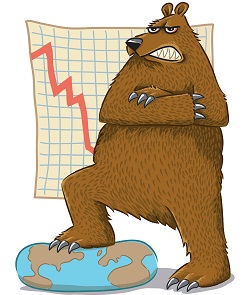 Right before Facebook begun trading publicly, one of my best friends told me he’s considering buying some of the company’s shares. When I asked him why, he mumbled something about reading “financial analyses” on popular tech sites on how enormous the social network is, how solidly blended it is with people’s lives and that it even makes it a “sure thing”.
Right before Facebook begun trading publicly, one of my best friends told me he’s considering buying some of the company’s shares. When I asked him why, he mumbled something about reading “financial analyses” on popular tech sites on how enormous the social network is, how solidly blended it is with people’s lives and that it even makes it a “sure thing”.
But what my friend, which isn’t financially educated himself, didn’t knew is that there isn’t such thing a “sure thing” in the stock market. In fact, whenever the public starts using these words to describe some investment, any kind of investment, it is probably the time to pull out.
I took upon myself the liberty to explain to my friend how the market forces works (unlike my friend, I actually do have financial education and professional trading experience). I didn’t tried convincing him to buy or not, nor tried to predict if the share will get bullish or bearish, but just offered some basic elucidation about the complexity and volatility of the stock market.
Scared as hell from the intricacy composing the financial world, which didn’t seemed so awfully complicated just a few moments before, my friend decided this whole matter is well over his head and neglected his FB-sure-thing aspirations.
Greed, Fear and Irresponsibility
Warren Buffett, one of the greatest investors in history, has once portrayed plainly the general investment strategy of his company: “We try to be fearful when others are greedy and greedy when others are fearful.” (Warren Buffett didn’t invested in Facebook)
Buffett’s brilliant quote suits perfectly to the whole Facebook turmoil after going public- There were too many who were greedy and very few who were fearful. Before the IPO, people thought that the share will explode to new heights every day out in the wild and didn’t wanted to leave “money on the table” (don’t you hate Wall Street’s idioms?).
And true enough, in the first few minutes of Facebook’s D-Day the share indeed flew high. But that was it. Since then and until now, folks who bought the share in those first few minutes LOST MORE THAN HALF of their initial investment (on August 16th FB closed below $20 a share).
The media, and especially the tech blogosphere, played a major part of bloating Facebook’s value beyond a reasonable estimation. Many reputable tech bloggers forgot that they are TECH bloggers and not FINANCIAL bloggers. They somehow thought that just because they know all the cool innovative features Facebook has, that certified them as “Facebook stock experts”.
On some of the most popular tech blogs in the world you could find outrageous “financial analyses” about Facebook IPO from people who aren’t qualified to give such advices. Some of them even claimed that there is/isn’t a “tech bubble”, like they are capable of understanding what does it even means.
What’s even more egregious is that they are still brazenly keep doing it today without any proper disclosure of their lack of real economic understanding.
{Begin Ranting Message To Bloggers}
Hey fucking tech bloggers! Stop offering financial recommendations! You are misleading people who thinks that you are qualified enough to advise about these issues. You are NOT qualified enough to advise about these issues! Just focus on pure tech stuff, sometimes you don’t even doing that too well.
If you insist on expressing your idiotic financial opinions, at least disclose that you are unqualified, uneducated and pretty darn stupid to talk about financial stuff.
{End Ranting Message To Bloggers}
And for all you people out there who seek financial assistance, not any site that is first on Google search results is certified to provide the professional information you need. Many bloggers are well articulated and funny but there’s nothing funny about losing most of your money.